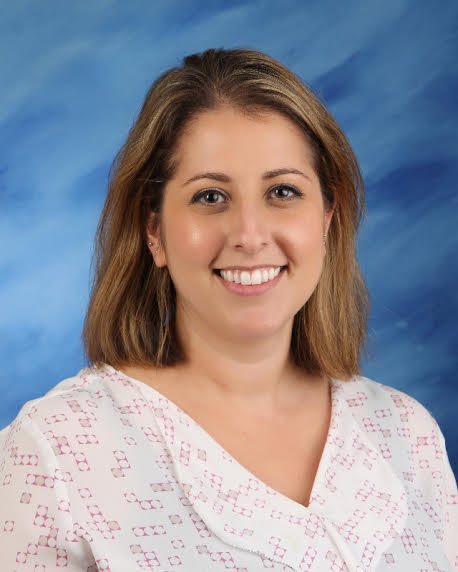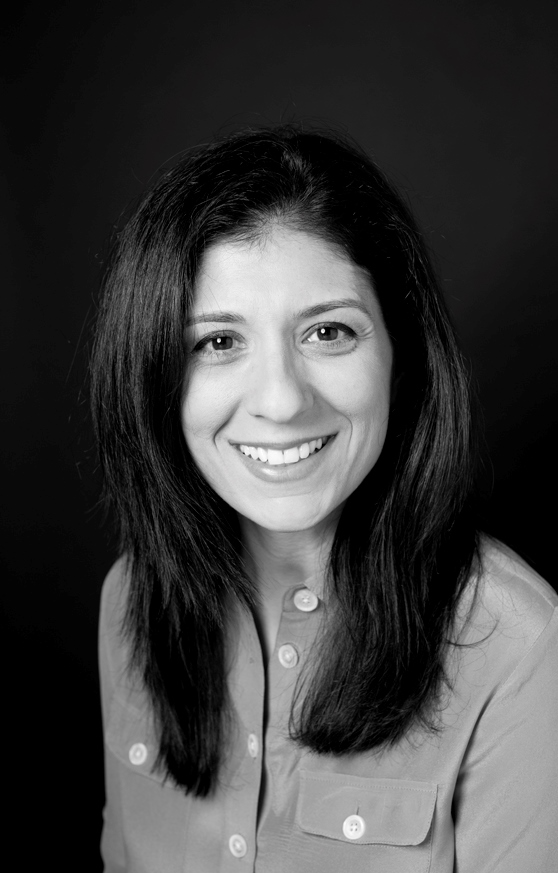The term “trial by fire” doesn’t quite capture Amanda Mazin’s first teaching experience in New York City.
“I was put in charge of six non-verbal five-year-olds in a self-contained classroom, in a self-contained building, seven stories below sea-level,” recalls Mazin (Ph.D.’11), who had relocated from Florida in a U-Haul just to take the job. “I’d had basically no experience with kids with such significant needs. So I started taking every course I could find, and my philosophy became, essentially, the kitchen sink approach – whatever works best for each child and each family.”

Mazin has learned to adapt to the needs of children and familie
It was not, perhaps, the most coherent form of on-the-job training, but, as it turns out, it afforded Mazin just the preparation she’s needed to flourish during her nearly 20-year education career. She subsequently pursued doctoral training at TC where her research emphasized evidence-based practices for students with autism, and now, after seven years as a faculty member at other institutions, she is back at TC as Lecturer and Practicum Coordinator of the Programs in Intellectual Disabilities (ID)/Autism.
“We’re not just about one method,” says the ID/Autism Program Director, Laudan Jahromi, Associate Professor of Psychology and Education. “Our programs prepare graduates to apply research-validated strategies in their work with individuals with and without disabilities across many different settings, both inside and outside the classroom. Our curriculum is grounded in developmental and ecological frameworks, so we also emphasize the important role of context in the development of individuals with disabilities. And that makes Amanda really perfect for us, because not only does her research align with the goals of this program – that is, preparing professionals to use evidence-based strategies with individuals with disabilities – but she also brings a fantastic network of school connections, in New York City and beyond.”
[ Students in the The ID/Autism programs have opportunities to learn from TC’s other programs in the Applied Sciences of Learning and Special Education Cluster, including programs in Applied Behavior Analysis and Deaf/Hard of Hearing. ]
Lots of Options
The ID/Autism programs include three master’s degree programs that lead to New York State certification (one for working with children at the birth-to-grade two level, another for elementary school jobs and a third for working with high school students with disabilities) and a Ph.D. and Ed.D. that provide advanced research training. Other master’s programs within the ID/Autism unit include an M.A. in Severe or Multiple Disabilities, and the interdisciplinary M.A. in Developmental Disabilities. The latter program is not new, but it has been gaining increasing recognition.
In many ways, the Developmental Disabilities program exemplifies Jahromi’s own interdisciplinary research, which brings together her background in human development with a focus on at-risk and special needs populations. Specifically, Jahromi studies the social-emotional development of youngsters with developmental disabilities (especially those in immigrant families) as they learn to self-regulate; how parents or caregivers figure in that process; and how families navigate their child’s transition from preschool to kindergarten.
"We’re not just about one method. Our programs prepare graduates to apply research-validated strategies in their work with individuals with and without disabilities across many different settings, both inside and outside the classroom. Our curriculum is grounded in developmental and ecological frameworks, so we also emphasize the important role of context in the development of individuals with disabilities.” -- Laudan Jahromi
TC’s Special Education programs have a long and remarkable history of groundbreaking work in the field. Now, under Jahromi’s leadership, and with the hiring of Mazin and the recent launch of an online version of the Developmental Disabilities Master’s degree program that allows professionals from a variety of areas to learn important skills without having to seek certification, the programs are striving to reach a wider audience. The goal: to prepare the next generation of professionals who will support individuals with special needs in many different contexts.
“In the Developmental Disabilities programs, we give our students core knowledge about special education and the individual characteristics and support needs of people with developmental disabilities like autism,” Jahromi says. “But we also enable students to build on that expertise with an interdisciplinary specialization through coursework across the College, for example, in clinical psychology, human development, health, or communication sciences.”
As a result, students come from a variety of backgrounds. Some are current or aspiring teachers – but there have been students from such diverse fields as medicine and law.
“Health practitioners have sought this knowledge to improve their support of families and children with special needs in their practices,” Jahromi says, while those contemplating legal careers advocating for special needs students “want this knowledge because they know it will strengthen their advocacy.”
Now the Development Disabilities program is being offered online, with the same faculty who teach it in TC’s classrooms, with “the same rigor you’d expect from a graduate program at TC,” and with the option to finish in one year or two, Jahromi says. “It’s a way of practicing what we preach, because just as the program itself does, we’re acknowledging that different people learn best through different methods.”

PRACTICING WHAT SHE PREACHES Jahromi says the new online version of TC's the Development Disabilities program is an acknowledgement that that different people learn best through different methods.
Now the Development Disabilities program is being offered online, with the same faculty who teach it in TC’s classrooms, with “the same rigor you’d expect from a graduate program at TC,” and with the option to finish in one year or two, Jahromi says. “It’s a way of practicing what we preach, because just as the program itself does, we’re acknowledging that different people learn best through different methods.” She finds the work uplifting, she says, because “you feel most empowered as an educator when you prepare quality professionals, and we’re doing that more broadly across disciplines and geographies. TC is the ideal place to pursue this type of degree, because at our core we’re an interdisciplinary college.”
New Directions
The Program’s next focus, she says, will be an effort to expand faculty expertise across the life space. “I work with young children, but there’s also a huge need for research focusing on teenagers and adults, because their services essentially fall off a cliff when they finish high school. This population has unique needs, yet practitioners are often unprepared to provide supports across the lifespan.”
Meanwhile, Jahromi’s own research continues to build on the idea that ecological factors are important to the experiences of children with autism and other development disabilities and their families. In her most recent study, she followed a particularly diverse group of families with children with disabilities through the transition from preschool to kindergarten. Now she’s beginning a project employing what she calls “community-based participatory research,” in which all the stakeholders – including participants– will play a role in shaping the research agenda.
“If we want to strengthen the validity and impact of our work, researchers alone shouldn’t decide what is important for us to know about families of children with disabilities,” Jahromi says. “Parents, other caregivers and service-providers are the experts, so they will have an equal voice in calling the shots with this research approach.” – Joe Levine
To learn more about Laudan Jahromi’s work, read: